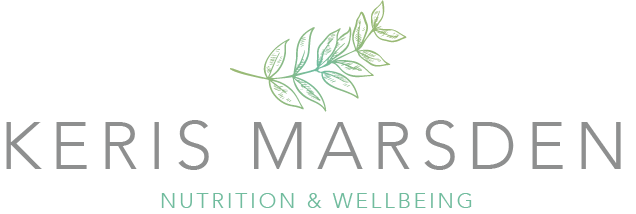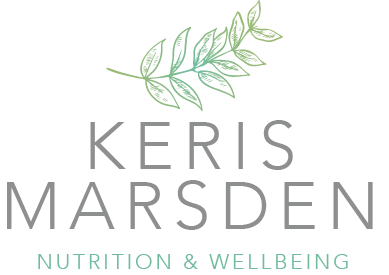How to gain weight with healthy nutrition
I work with a number of clients who need to gain weight for various reasons, however, healthy guidance on how to do this is rarely offered.
The main reason being the easiest way to gain weight is simply eat all the food.
Processed foods tend to have a greater energy (calorie) density too so they’ll do the job quickly.
The problem here is that consumption of processed foods (especially the ultra processed variety) is associated with terrible health outcomes so when recovering from a disease state they’re the last thing your body needs.
Typical reasons healthy weight gain may be needed
Here are some common situations where weight gain is required for health:
To regain weight after gastrointestinal issues (inflammatory bowel disease,
To regain or support a regular menstrual cycle
To regain the weight unintentionally lost due to stress, illness or ageing
To regain weight lost after surgery or injury
To improve sports performance
To build muscle
Recovery from an eating disorder
Impact of excessive weight loss
Some people are naturally and genetically lean and healthy, so if you eat a nutritious diet, feel good and have no health complications you may not need to gain weight.
Having insufficient body fat and caloric intake is also associated with:
Low energy and fatigue
Osteoporosis (especially if your vitamin D or calcium intake is low)
Dull, dry or spotty skin
Dull, dry or thinning hair or hair loss
Anaemia (low iron or B12)
Digestive issues
Hormone imbalances such as infertility or abnormal/no periods
Impaired immune function and an increased risk of infections
Consider the root cause
To achieve a healthy weight, it’s essential you establish why you may be underweight in the first place.
IMPORTANT: if you notice you’re losing weight and unsure why contact a medical professional to discuss as unexplained weight loss can be linked to numerous health complications and needs to be investigated.
If the issue is one of an emotional nature, then it’s important to address what is behind your resistance to eat. Beat and First Steps are charities for people with disordered eating habits or diagnosed with an eating disorder. They provide information and professional support.
If stress is a possible cause of your weight loss tools such as mindfulness, talking therapies and more self-care may help you deal with your personal challenges in a healthier way.
If you’re struggling with digestive issues and decreased appetite, it’s important to contact your GP. They can eliminate the possibility of digestive conditions such as Crohn’s or celiac, type 1 diabetes or hypothyroidism.
How do you know if you are underweight?
For the majority of the population, using BMI (body mass index) is a useful tool to understand if you’re underweight.
This calculation uses your height and weight to work out if your weight is healthy.
Click here to find out what your BMI is BMI calculator
If your BMI is under 18.5, you are underweight.
What to eat to gain weight healthily
When looking to gain weight, it is important to do it in a nutritious way, increasing your consumption of all three macronutrients including aprotein, carbohydrates and fats.
Carbohydrates
Favour the following nutritious sources
Sweet and white potatoes
Root vegetables: beetroot, celeriac, butternut squash
Brown, white or wild rice
Oats
Quinoa
Pulses: chickpeas, lentils and beans
Fruits
Ideally limit or avoids processed and refined options like sugary sweets, biscuits, cakes and other processed foods.
Fats
These contain the most calories per serving so are an easy way to increase your weight. Fats are also important for brain function, energy and hormone balance.
Healthy sources include
Nuts, Seeds And Nut/Seed Butters
Olive Oil
Coconut Oil
Butter
Full fat dairy
Avocados
Dark chocolate
Oily fish (salmon, sardines or mackerel)
You can consume a good amount of energy in just a small serving which is helpful if you struggle in terms of having little appetite.
Using oils for cooking, dressings and snacks is a great way to top up your calorie intake.
Protein
Protein is vital to ensure that you build healthy muscle as well as some additional bodyfat.
Have a serving at every meal and snack.
Good sources include:
Meat
Fish
Eggs
Seafood
Soy
Dairy
Quinoa
Pulses: chickpeas, lentils and beans
You can also supplement your diet with a couple if scoops of protein powder each day sourced from whey, rice, hemp or pea protein.
Fatty proteins will help you gain weight more and these include red meat, oily fish, eggs, full fat yoghurt or milk, nut or seed butter.
Healthy weight gain meal ideas
Breakfast
Omelette with eggs, cheese, spinach and mushrooms
Protein smoothie with protein powder, nut butter and a banana
Natural yogurt with nut based granola, nuts and berries
Smoked salmon on rye toast with mashed avocado
Porridge oats mixed with full fat yogurt and stewed fruit
Lunch
1 large chicken breast with brown rice and an avocado salad
Tin of tuna or sardines in oil with baked sweet potato and salad
Cooked tofu warmed in a ready-made vegetable soup drizzled with olive oil
Dinner
Lentil dhal topped with pan fried tofu and served with brown rice
Baked salmon with quinoa and stir fry vegetables
Steak pan fried in butter with sweet potato chips and oven roasted vegetables
Seafood paella with salad
Snacks
Banana with spoonful of nut butter
Full fat yoghurt or cottage cheese with fruit
Homemade flapjacks with oats, butter, fruit and nuts
Homemade trail mix with nuts, dried fruit and dark chocolate
Homemade banana bread topped with honey
Be mindful of your movement
It’s also helpful to keep an eye on how active you are.
As you eat more calories your energy levels may improve but it’s helpful not to burn off the additional food you’ve consumed.
Even just not sitting still could impact your efforts.
Non exercise activity thermogenesis (NEAT) is the name given to movement that isn’t exercise or sleep. This might be gardening, pottering around the house, ironing, vacuuming and even fidgeting.
It might help to observe how much energy you are expending.
On average, 10,000 steps burns around 300 to 400 calories. If you are someone who racks up lots of steps each day, you may need additional nutrition to make up for energy burned or cut back on your steps.
Need help?
If you need some help or support regaining a healthy body composition you can book a free 15 minute call to discuss working together.

